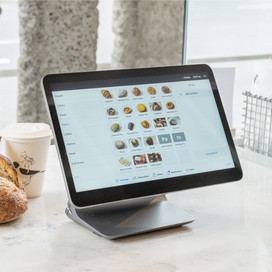As Group General Manager of MUCHO, Daisy Tulley is forging a unique path of service in the group’s collection of bars. This starts with her approach to the company’s people, training them to serve guests with empathy. What does this mean, exactly? Let’s find out.
Hey, Daisy! Service at your venues has always been such a pillar of each bar’s experience, can you walk us through MUCHO’s service philosophy and how this has evolved?
Service at MUCHO is at the core of what we do at each venue and is the first thing we train. Our philosophy is very much founded by co-owners and bartenders Jeremy Blackmore and Alex Dowd. From our first night at Tio’s nearly 14 years ago, we hand-squeezed every lime in every Margarita. This is to say, we do the hard things to make the guest’s [experience] better. However, over the years we realised that, like everything, great service is a muscle you can flex — the bars and everyone in them can always get better and better. We want to be dedicated to hospitality based on empathy, and one that avoids the old hierarchies.
What are the key principles that guide your service approach at MUCHO?
Inclusive, empathetic and memorable. We want to have real conversations with our guests and are trying to change our relationship to the guest from commercial to social. We want to avoid the future in which bartenders and bars are just fancy vending machines. We embrace a little bit of the chaos that comes with real interactions. This empathy really just means we pay attention to what people actually want when they come to a bar. We try to build everything with the guest front of mind.
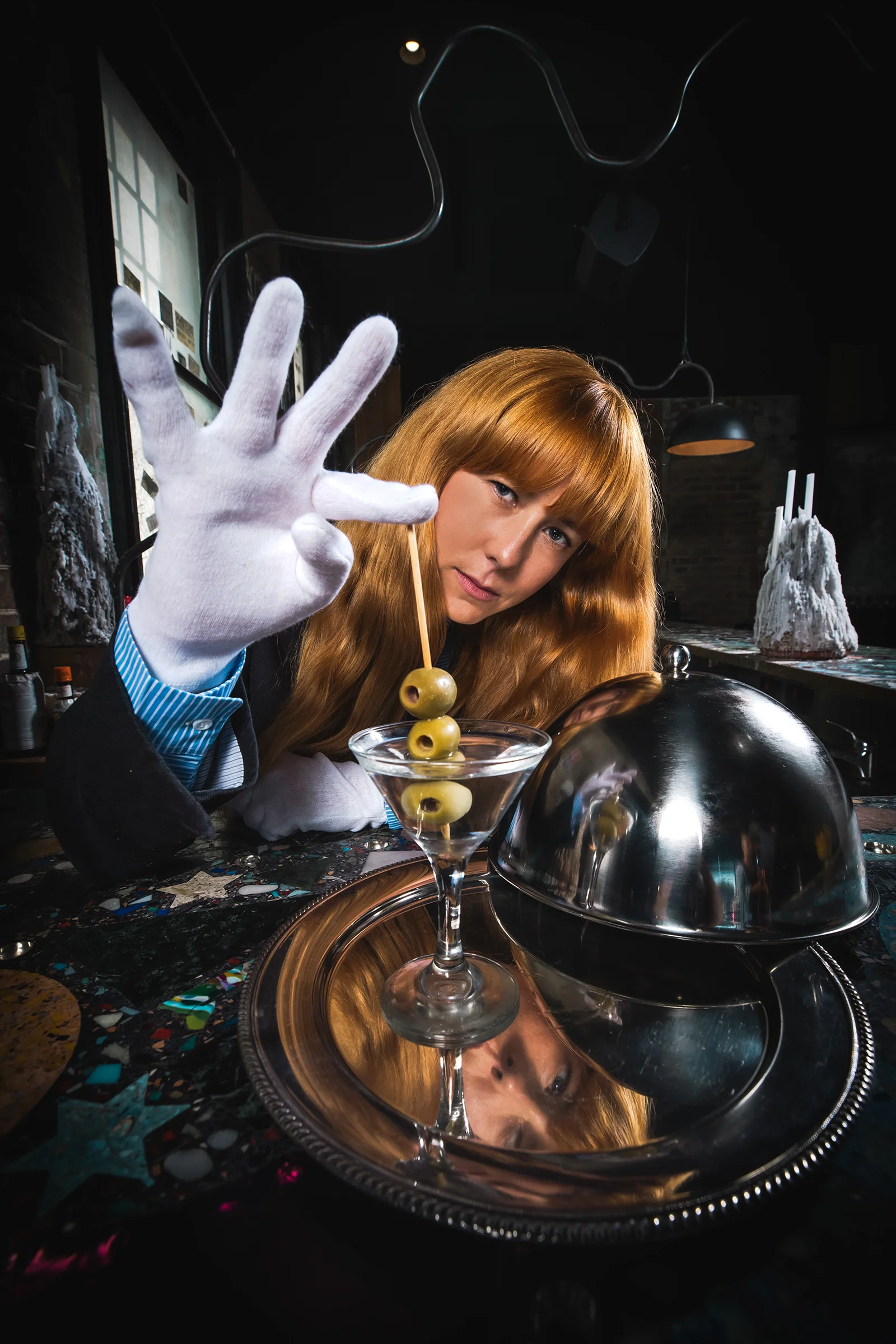
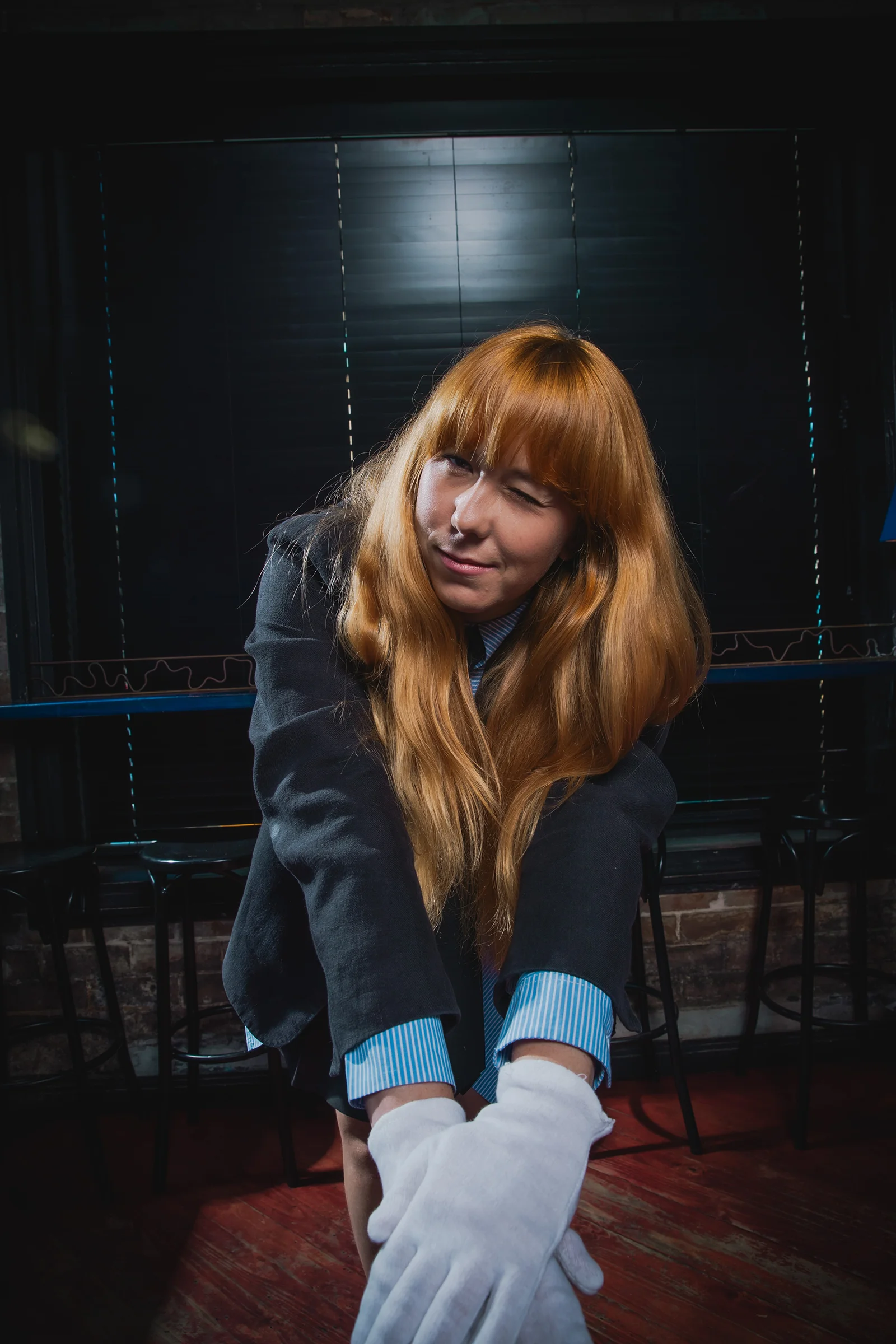
Coming from previous roles in music and performing arts to now the Group General Manager of MUCHO, how has this background influenced your own personal approach to hospitality?
Working in the music industry at a young age (from 16–24 years old) informed so much of my life and my workings now — marketing, management, the creative process and overall a good understanding of ‘’cool culture’’.
Management-wise, I had a manager from 16 and I also naturally led the band in terms of logistics: touring, flights, records deals, and networking. I grew up fast and had to navigate being managed and managing a group of people to get the best result. Dealing with the creative process, egos, performing, it’s all really the same stuff with bartenders. They are performers too.
This background has also influenced the way we market our venues. Our band got signed at 16 and I knew we were a product from then, we had to be a brand, get played on the radio, and sell shows and records. From 16 I was taught everything and everyone is a brand that can be sold, you just need to package it up nicely. I applied what I learned to MUCHO with our Associate Creative Director, Clay Ciolac, who also comes from music, which resulted in a new way to market bars. We treat it just like a band, showcasing band members, the community and their creative process. Our teams are such amazing people that all have a story, why not celebrate how wonderful they are? It’s about connection and our audiences want to feel connected to us and feel part of our community.
You’ve mentioned the importance of empathy and inclusivity in your service model. How do you cultivate these qualities in your team?
I try to influence our teams wherever possible to not just think about their output and themselves. It’s about getting the best result together and the best experience for the guests. This takes low ego and humility that can at times be confronting for people. You own your own mistakes and strive to be better, but the constant self-reflection can be a lot.
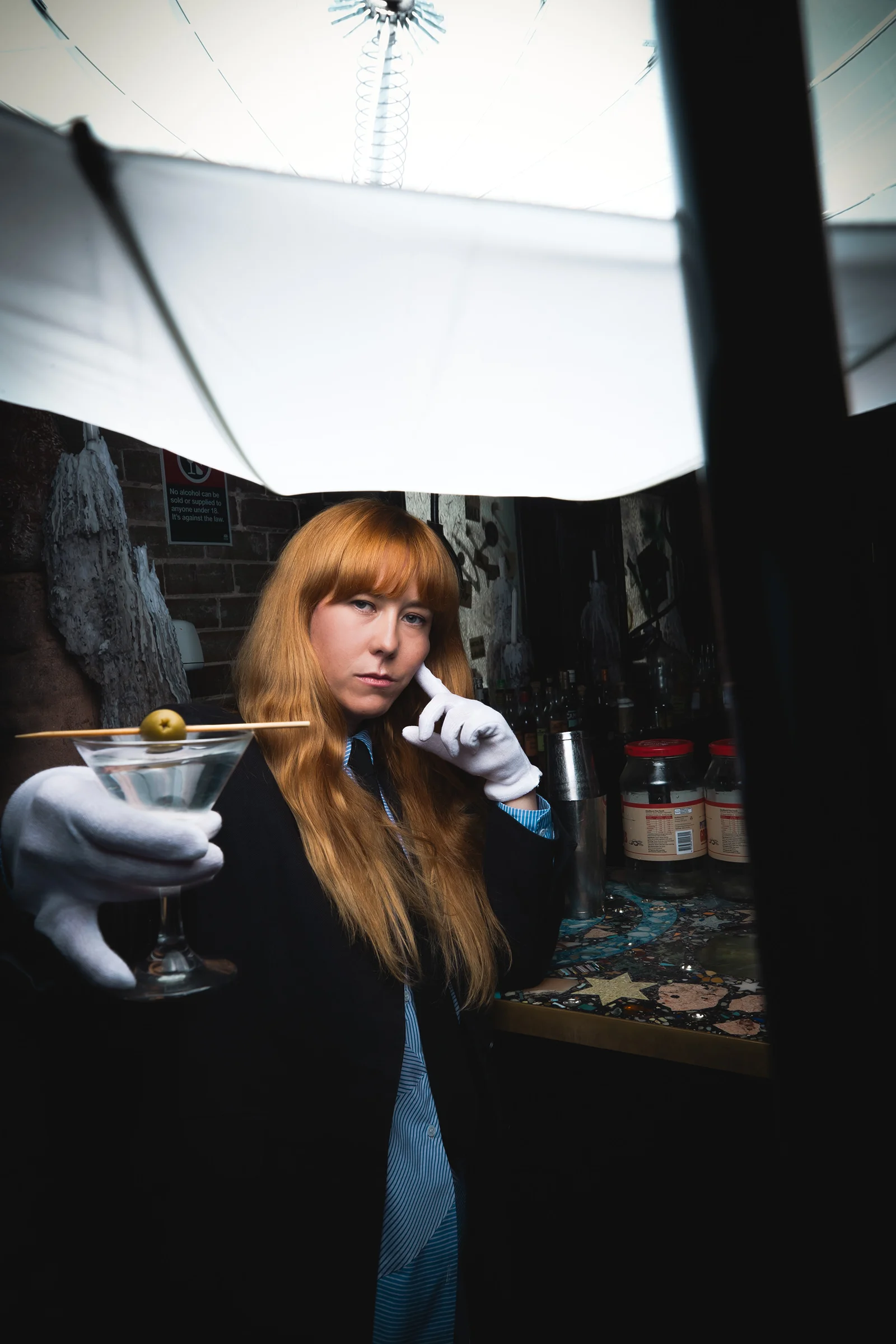
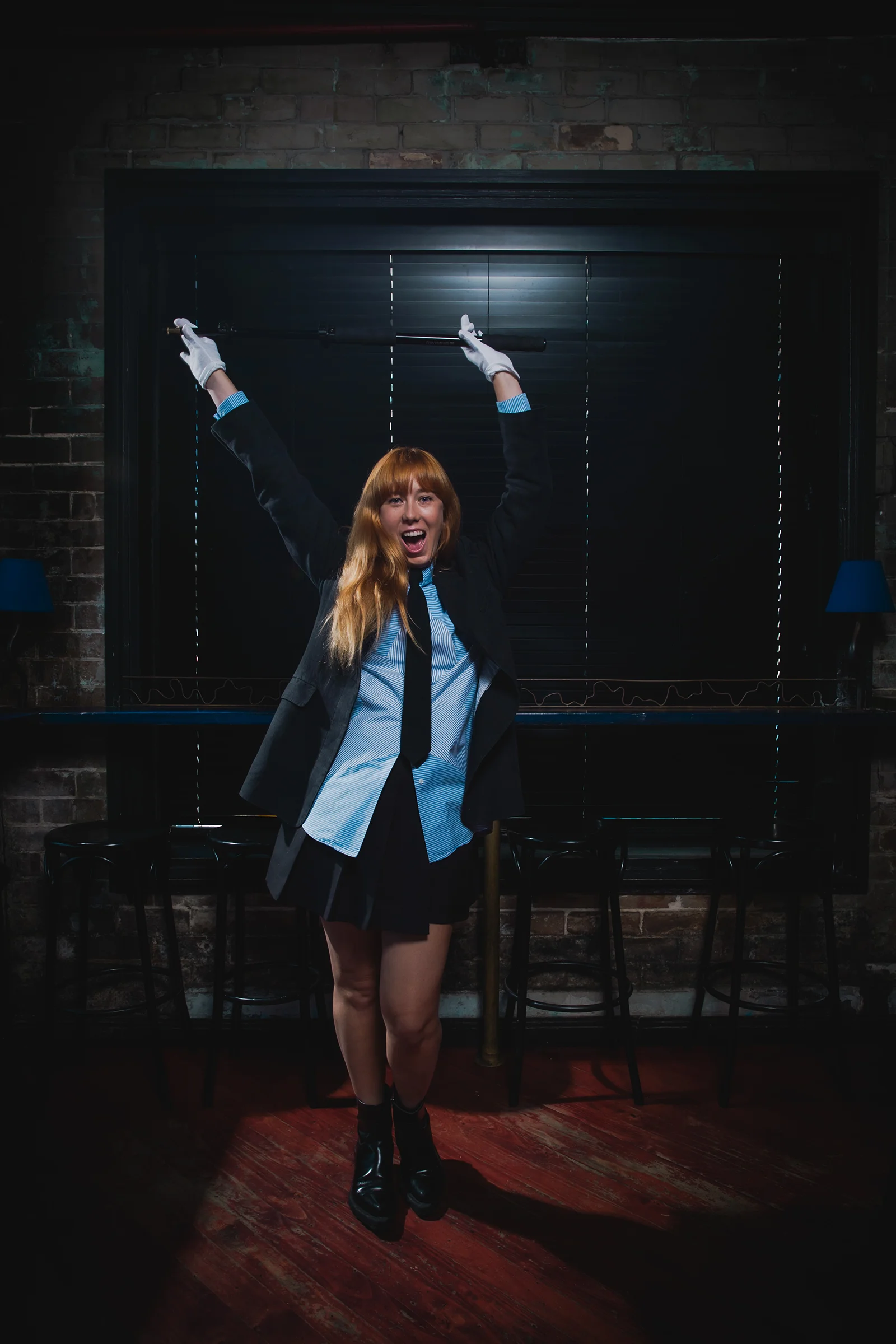
Storm Evans holds the role of full-time Head of Service at MUCHO. Can you elaborate on this position and how it contributes to maintaining service standards?
Storm Evans worked at Cantina OK! for four years until recently when he was offered the role of Head of Service at MUCHO. He now spends all his time training our staff in off-service training sessions and then 3–4 nights a week he is dropping into the venues to help in service, train staff and report on our service standards every week. It’s an extra set of eyes to make sure every person in the company is getting the support they need to succeed.
You’re doing your people a disservice if you’re not constantly teaching them. I want them to leave MUCHO better than when they arrived.”
Daisy Tulley → Group General Manager, MUCHO
Esoteric or rare spirits can be daunting for staff and the customer, how do you work to make tasting these spirits more approachable to staff and your customers?
It’s a really fun process to taste spirits emotionally, asking questions like “How do I feel when I taste this spirit?’’ or “What memory does it evoke?’’ I think our staff appreciate the fresh approach and it helps them personalise their service. At Cantina OK! we taste and label the mezcals together with a “kernel’’ (a silly memorable name for the spirit we come up with) such as “Red Spider,’’ “Frosty Fruits,’’ “Lawn Mowing Shoes,’’ “Bush Doof,’’ or “Hello Kitty’’. For staff, it’s an opportunity for a little fun team building, enhances the community spirit and gives them the chance to leave their stamp on something that can stick around for years. For customers, it makes for a much simpler ordering process — rather than relying on customers to remember the confusing Spanish and Spanish producer they liked, ordering the drink via its kernel, like the “happy hippo mezcal,” is far more memorable.
How do you encourage continuous learning and self-reflection among your staff?
Yes, we’re in the business of relentless personal and professional growth. Part of growth is making, identifying and analysing wins and losses. We allow room for mistakes and celebrate “what went well’’ and “what we could have done better’’ in all our nightly, weekly and monthly reporting. This cultivates self-reflection at every turn and a healthy conversation.
Looking ahead, what aspects of your service philosophy do you see evolving or expanding in the future?
We’re planning more interactive service experiences, like the ice shaver at Cantina OK! or the Martini Porron at Bar Planet. We’ve realised guests love the performative aspect of making their cocktail and also something to film and share on their socials. Customers love performance because it shows added value. If you pour a batch bottle into a glass and serve it, it doesn’t feel like good value to the customer. When customers see more effort coming into the drink, they feel better about paying $25 for it, because someone’s worked hard for it. At MUCHO we think a lot about the point in the venue experience where a customer would take a photo or film something. Social wasn’t around when we launched Tio’s, and [until recently] there was no moment when customers were enticed to take a photo, so we introduced the Mega Margarita. It has four straws, three different salts and comes in a massive Margarita glass, people instantly want to take a photo of it. Consider what this point is in your own venue, otherwise, you may miss that marketing opportunity.
What’s been the biggest challenge in implementing your guest-centric approach, and how did you overcome it?
Consistency with the staff and creating our MUCHO service method into a black-and-white concept so our staff understand the method and know how to succeed in our model. We define the MUCHO approach to service as looking people in the eye and reaching to the back of the fridge for the coldest glass or beer, but so much of good service is wisdom and that’s hard to train, especially when most of our staff are 18–25 and don’t yet have the experience we have at 40. So, we educate the staff on critical thinking and also give them all the tools to succeed. We take them through what to expect and how to handle a lot of different specific service situations in training. It comes down to the initial hire, too. We hire heavier based on personality and service wisdom over technical bar skills, as they can be taught more easily.
Can you share a specific instance where your unique service approach sets you apart from competitors?
Generally, I’m constantly surprised by the lack of engagement and inclusion with service at other venues. Even to the extent of not feeling welcome or cool enough to be in the establishment. I think that’s such a shitty feeling that I’d never want anyone to feel. I want every person to feel welcome, no matter where they come from or who they are. I’m very passionate about that and have had to constantly pull staff members up to not show any preference to customers they know personally during service.
What advice would you give to other hospitality businesses looking to enhance their service culture?
-
Balance guest experience with profit. If your overbearing motive is revenue or profit, your staff and guests will feel it. We’re in the business of experience, that comes first.
-
Engage with mystery shoppers, and eat some humble pie. What you’re currently doing might not be the best way. Take on the feedback.
-
Train your staff well, and ask them what training they need. Listen and respond appropriately.
-
Invest in HR. I’ve hired a new Head of People, Amy Rann, to help me make sure everyone is happy.
-
Listen to your staff. How are they? Are they happy? Listen and respond appropriately.
Explore more expert hospitality knowledge via our In Service series.
![]()




